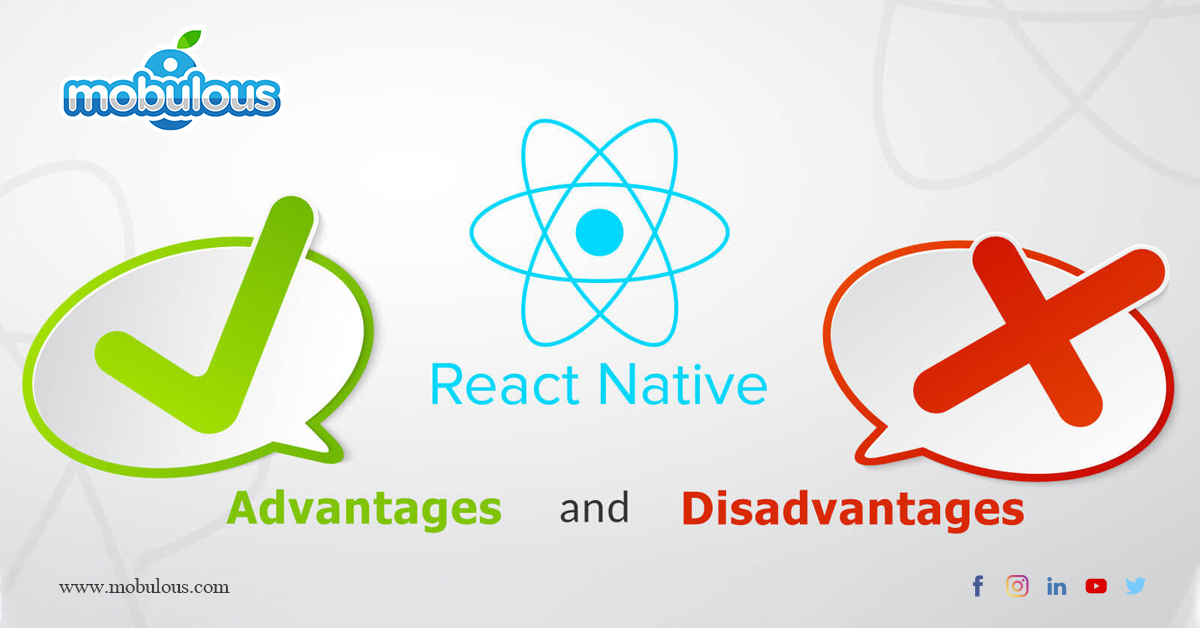As Android and Ios apps are becoming more popular with every passing day, businesses are investing huge money to create apps for both platforms to attract wider audiences. So, Most of the developers prefer cross-platform app development over fully native app development. The main reason behind choosing cross-platform app development is that it can build apps using the same codebase across iOS and Android and reduce time and development costs. The React Native framework is considered the future of cross-platform mobile app development. According to the report, among the top 500 apps in the US, approximately 14.85% of installed apps are built with React Native.
What do you mean by React Native?
React Native is an open-source framework that lets you create cross-platform mobile applications using the JavaScript and React programming language, an open-source JavaScript library developed by Facebook, Instagram, and other developers to build user interfaces. It is regarded as the most preferred cross-platform to create apps for both Android and Ios. It will enable you to work on two different operating platforms using a single platform. The majority of developers are opting for React Native to develop cross-platform mobile applications. The main characteristic of this framework is that React Native apps function just like native apps.
Some of the Popular React Native apps:
- Skype
- Tesla
- Walmart
- Discord
- Bloomberg
Advantage of using React Native for mobile apps:
- Known for optimal performance
When it’s about improving the performances through native control and modules, React Native works the best. It gets attached to the native components for both the Operating Systems and generates a code to the native APIs upfront and freely.
Now the performance enhances because it makes use of a different thread from UI and the native APIs. You can also use other alternatives, such as opt for the Web View, but it will decline the performance level.
- Large Community of developers
React Native is an open-source JavaScript platform that means all documentation related to this technology is accessible for everyone. It allows them to contribute to it whenever they want. Using community-driven technology helps you greatly. For instance, if you require any help related to React Native development, you can ask help from community experts or find information online.
- Access to Libraries and Ready-made Solutions
React Native includes a wide range of pre-made solutions and libraries available for free for developers to access. The answers help simplify app building and help developers focus on creating more bug-free codes.
- Simplified UI
React Native allows you to create unique, amazing UIs through pre-built declarative components that include Picker, Button, Slider, Switch, and so on. If we compare React Native to AngularJS or MeteorJS, we will see that it looks more like a JavaScript library than a framework.
While creating a mobile app, you must create a sequence of actions, and React Native makes an implementing order just excellent. Additionally, user interfaces designed in React Native are more responsive and provide a seamless experience.
Drawbacks of using React Native for mobile apps:
- Low Security
No wonder Javascript is one of the highly flexible and powerful programming languages. However, it is an open-source framework due to which developers often face the challenge of keeping the app safe. While creating apps such as banking or finance applications, which require an extra layer of security, developers need to be extra alert. As a result, developers avoid creating banking or finance apps on React Native.
- Complex User Interface
According to most coders, React Native is not a suitable choice for creating apps that require multiple interactions, complex gestures, screen transitions, or animations. Despite having a gesture responder system in React Native, coders might face difficulties in screens with complicated gestures. The IOS and Android touch subsystems are so much different from each other using a unified API.
- Memory Management
React Native is not an appropriate option for computation-intensive apps as it is based on JavaScript. It reduces the speed and performance of these apps, and float computations are also handled inefficiently, making memory management and usage quite tricky.
So, these are some of the acknowledged pros and cons of using React Native.
Read Also: Top Advantages of Android App Development for High Return Investment in Business
Final Words:
We don’t live in a perfect world, so there is no ideal platform to create apps. Every technology comes with its merits and demerits. React Native framework is an ideal solution for most use cases unless you have specific platform issues. You can create mobile apps for your businesses with React Native framework.
At Mobulous, we have a team of highly skilled and experienced developers who deliver high-performance applications built with React Native.
In final words to something about react-native app development then you own conclusion what we do or whatnot.
You can contact us for more information regarding React Native framework for mobile app development: sales@mobulous.































